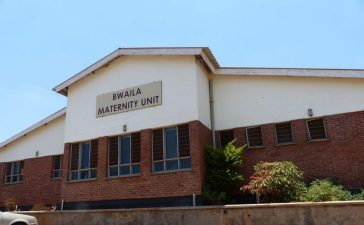Malawi and Mozambique’s bilateral relations have reached an unprecedented peak, marked by the Malawian leader’s current state visit to Mozambique at the personal invitation of President Filipe Nyusi. As we speak, history is being made as the Malawian President, Dr. Lazarus McCarthy Chakwera, has overseen the signing of a groundbreaking Petroleum and Related Products Agreement, alongside a transformative electricity deal. These agreements, sealed on the first day of the visit, are poised to revolutionize electricity access for Malawians and drastically reduce fuel costs in the country.
The high-stakes signing ceremony took place in Maputo this afternoon, immediately following intense private bilateral discussions between President Chakwera and President Nyusi. The Malawian Minister of Energy, Ibrahim Matola, inked the deal on behalf of the government, under the watchful eyes of the two presidents.
This monumental agreement comes just three weeks after a historic milestone—Malawi received its first trainload of diesel fuel in 21 years, thanks to the newly refurbished rail link from the Indian Ocean Port of Nacala, a project spearheaded by the Chakwera administration.
President Chakwera has hailed the signing of the Petroleum Agreement and his state visit to Mozambique as nothing short of “pleasant, memorable, and overwhelmingly successful.” He emphasized that this monumental agreement will not only slash pump prices but also dramatically boost electricity access across Malawi, marking a turning point in the nation’s energy sector.
On the sidelines of the historic event, NOCMA Chief Executive Officer Clement Kanyama echoed the President’s sentiments, declaring that the fuel agreement will significantly reduce Malawi’s fuel landing costs in the long run, paving the way for sustained economic growth and energy stability.
“Nacala to Lilongwe is just 36 hours, and the same volume from Dar es Salaam (Tanzania) takes four to five days which means that with the agreement in place, we can now save more money as we will have more fuel flowing into the country by rail,” he said.
Malawi is now navigating the challenge of a colossal monthly fuel consumption of 51 million liters, yet boasts an impressive storage capacity of 60 million liters, which can sustain the nation for a robust 35 days through NOCMA facilities alone. When factoring in the capacities of Oil Marketing Companies, this formidable storage potential skyrockets to 92 million liters, ensuring a fortified energy reserve for the nation.












